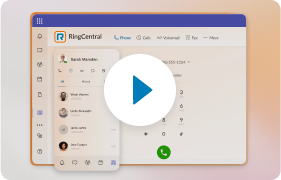If you work in sales or have ever worked in sales, then you will recognize this scenario only too well…
You’ve nurtured a prospective customer through your sales funnel or sales pipeline. They seem interested, but then, when it comes to closing the deal, they walk away. This can be a devastating moment, not only in terms of lost revenue but also a potential loss of confidence.
One of the most important stages in any sales relationship is the closing stage. It’s crucial to analyze the sales closing questions you currently use and ask whether you could improve your performance with better sales closing questions. Here, we’ll help you do just that.
What are sales closing questions?

Image sourced from hubspot.com
Sales closing questions are the questions posed to potential customers in order for them to make a purchasing decision. They can also gauge your prospect’s interest in moving forward and reveal any pain points or objections they may be feeling and/or experiencing.
Good sales reps will know the right moment to ask a closing question. They will look for verbal and nonverbal cues that indicate just how keen the customer is. A closing question will not necessarily be the final part of the process; if the sales professional can overcome any objections, it may be a cue to initiate further discussions and negotiations.

Types of sales closing questions
There are different types of closing questions that you can utilize in different scenarios as part of your sales closing techniques. Knowing what type to use will depend on where the salesperson thinks the customer is in the decision process.
- Assumptive – With this type, your thinking is that the customer is ready to buy and is a when or how not if scenario.
- Transitional – This type looks to address any objections while emphasizing the benefits and value proposition of your product or service.
- Sales point – These questions focus directly on what benefits the customer will get if they move forward with a purchase.
- Tailored –Here, you are offering customers a choice of options that you have customized to their needs or budget. This can empower their decision as they feel they have more choices.
- Soft – A more subtle approach that seeks to move the prospect toward the end of your sales pipeline without being pushy.
10 Sales closing questions you can try

Image sourced from hubspot.com
Every member of your sales team has an arsenal of tools at their disposal and should always be looking to add to or improve that arsenal.
1. What do you think?
This is a great closing question as it’s an open question so keeps the customer engaged with the process. Their answer could indicate a readiness to buy or it could identify objections you need to address.
On some occasions, it might just be a case of clarifying some details. For example, ‘I’m really interested, but I just need you to confirm the video conferencing solution security measures and standards again to check it’s suitable. ’
It is also a good way to cement the relationship by showing that you value their opinion and that you empathize with any problems they may be experiencing.
2. Which option do you prefer?
Customers like to have a choice and this question can help you explore those options. For example, if you’re selling a SaaS product, there will likely be a variety of options including level of service, payment plan, etc. You are still controlling the sales process while investigating the options the customer prefers.
Whatever the customer responds, it is based on the assumption that they will eventually buy. You are investigating their preferences while also narrowing down their choices.
3. I can give you a discount but…
This question allows you to introduce a time-limited offer to the equation. You want to create a sense of urgency for the customer and a fear of missing out (FOMO). You can also emphasize the benefit of accepting the discount by highlighting the benefits. For example, ‘If you accept this discount on our B2B lead generation tool, you could save $1200 over the course of a year’.
4.What are your doubts?
This is a great open question that can investigate any final hurdles you may need to get past to close the sale. Maybe they’re hesitant over your price point or still have questions regarding some of the technical features of your VoIP phone solution and they are unsure if it will meet their needs. While useful as a closing question, you should also be asking this after any sales pitch or product presentation.
5. Which functionalities or features are most important for you?
If you’re selling SaaS, CCaaS, or any other type of as a service or technical product, then the prospective customer will often have specific requirements. This question allows the customer to focus on what functionalities or features are important to them and why. If your product is lacking that specific functionality or feature, you may be able to point out what it offers as an alternative.
For example, you are having a sales conversation about a CRM (customer relationship management) solution you offer. The customer would like to see integration functionality with their existing marketing automation tools, but you can point out that your solution has a better marketing automation functionality built into it.
6. What would it take for you to sign?
This is a good question for identifying any objections or what you have to do to get the customer to buy. It also makes the customer feel that they are in control of the sales process and that they can dictate the terms of the purchase. For example, the customer might say, ‘If you can give me a 5% discount on the monthly subscription fee for your virtual call center system, I will sign today’.
7. What do you see as the main benefits for your business?
As part of your pitch, presentations, and discussion, you will have focused on the benefits your product will bring to the customer and what problems it will solve. This question flips that and also acts as a form of reflective listening (on the customer’s part). It ensures that the customer understands your value proposition and any USPs (unique selling points).
It can also make them consider any of the benefits you’ve mentioned and can move them to that magic point in your sales pipeline.
8. What impressions do you have?
While similar to ‘What do you think’, you can use this question to get the client’s perspective of more than the product. What do they think about your company? Is it an ethical one with a good reputation? It gives you an idea of their overall impressions, including the product or service. It can give you the opportunity to correct any misconceptions the customer has about your brand as well as your products/services.
9. Is there anything else you need to know?
Even the best salesperson sometimes forgets to include something in their discussions. You can tailor this question to be about the product, your business, or the specifics of the deal. It can highlight something the customer is unsure about and provides you with an opportunity to fill in any gaps. It can also be helpful if you’re meeting with someone who isn’t a decision maker so they have all the information needed to take to that person.
10. What would happen to your business if you weren’t to do what we discussed today?
You’ve presented all the benefits your product or service brings, you’ve shown how it solves a need or a problem, and you’ve overcome any objections the customer may have had. This question helps the customer to consider what problems won’t be solved if they decide not to purchase. It also gives you an insight into how the customer views your product and, ultimately, how interested they are.
The takeaway
Your sales strategies consist of different steps and different tactics. The decision-making process may be a long one (in the case of enterprise-level sales) or relatively short. While every step is important in itself, it’s that closing conversation that can lead to a sale. You need to examine your own sector and your sales cycle to see what sales tactics work best for you.
Sales closing questions, despite the name, are not always the final square on the board. In the closing phase, a positive response may lead directly to a sale or it may initiate further discussion. They can help you identify sales objections or specific problems or queries the customer may have. It’s all about building and maintaining a positive relationship that will lead to both a sales conversion and—hopefully—customer loyalty.
FAQs
Can I customize these questions to fit my sales style?
Absolutely. It’s important to tailor these questions to match your communication style and the unique needs of your prospects. Customization can make your questions more authentic and effective.
How do I handle a negative response to a closing question?
Respond calmly and use the opportunity to understand the prospect’s objections or concerns in greater detail. This allows you to address issues directly and adjust your approach to better meet their needs.
What should I do if a prospect is hesitant to answer a closing question?
If a prospect is hesitant, it’s important to be patient and provide reassurance. Reiterate the benefits and value of your offering, and offer to address any remaining concerns or questions they may have.
Updated Jun 24, 2025












